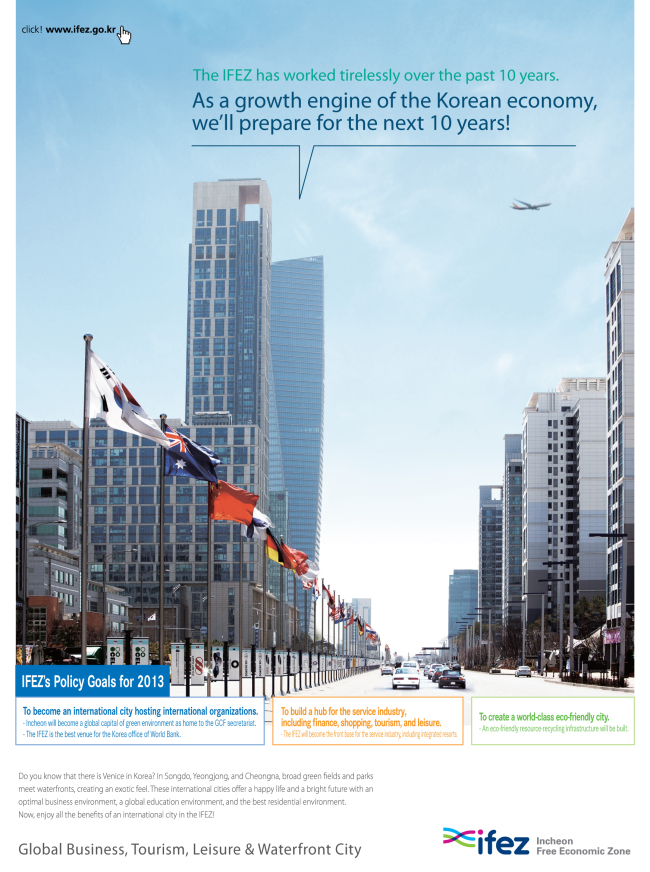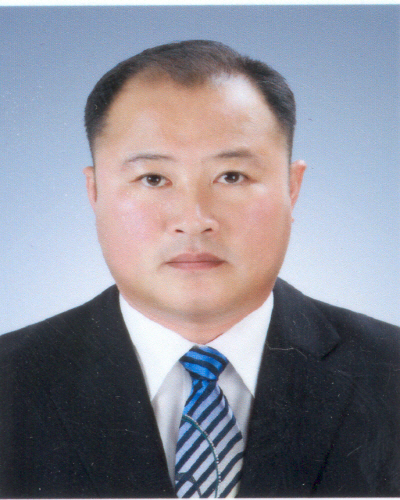
The Incheon Free Economic Zone, the nation’s first free economic zone, was launched in 2003 to strengthen national competitiveness by creating new growth engines. The IFEZ is now taking shape as a foreign business-friendly city based on decade-long investments. I’ve often heard that the first stage development of the zone was like creating something from nothing.
The IFEZ, composed of three districts ― Incheon, Songdo, Youngjong and Cheongna ― is now recognized as a leading global city in and out of Korea and so it contributes to promoting the core values of Korea to the world.
As of September, the IFEZ has attracted $5.06 billion in accumulated foreign direct investment over the past decade, the largest among the nation’s nine FEZs. The IFEZ accounted for 13 percent of the country’s overall FDI valued at $16.26 billion last year.
In addition, the IFEZ has continued to attract high-profile international organizations, including the Green Climate Fund and the Korean branch of the World Bank and Association of World Election Bodies.
It performed well in attracting universities from overseas, which is aimed at offering a world-class educational environment to IFEZ residents. The State University of New York runs a graduate school course at the IFEZ. Next year, George Mason University and University of Utah from the U.S. and Ghent University from Belgium will start educational programs at the IFEZ.
With the attraction of medical research and bio companies such as Celltrion and Samsung Biologics, the IFEZ will seek to become a hub for service industries in the second stage of development, which is aimed at creating jobs and driving economic growth of the country.
 |
Jeon Sang-bae |
By Jeon Sang-bae, Head of media relations team









![[Today’s K-pop] Blackpink’s Jennie, Lisa invited to Coachella as solo acts](http://res.heraldm.com/phpwas/restmb_idxmake.php?idx=644&simg=/content/image/2024/11/21/20241121050099_0.jpg)